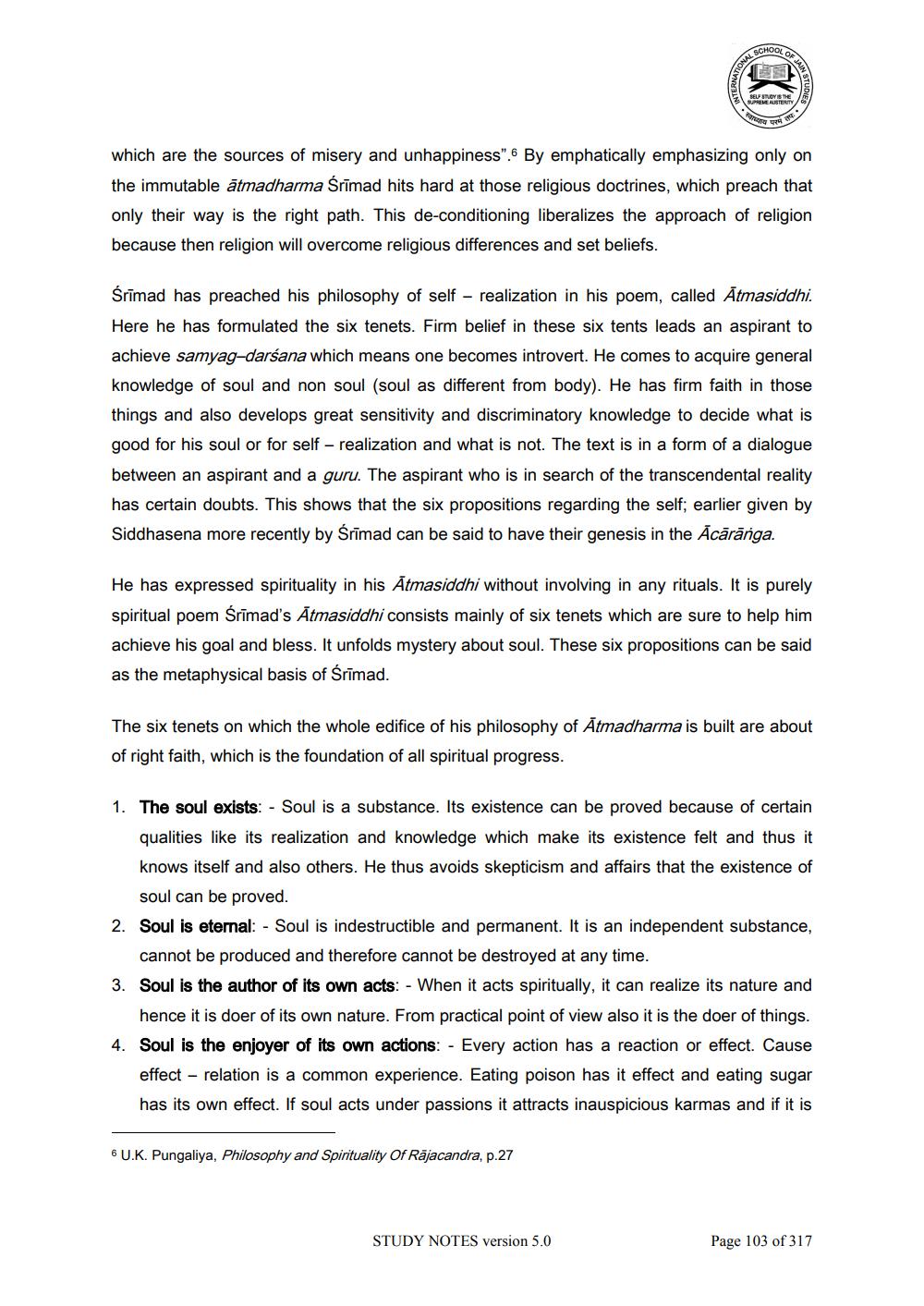________________
which are the sources of misery and unhappiness". By emphatically emphasizing only on the immutable ātmadharma Śrīmad hits hard at those religious doctrines, which preach that only their way is the right path. This de-conditioning liberalizes the approach of religion because then religion will overcome religious differences and set beliefs.
Śrīmad has preached his philosophy of self - realization in his poem, called Ātmasiddhi. Here he has formulated the six tenets. Firm belief in these six tents leads an aspirant to
hieve samyag-darśana which means one becomes introvert. He comes to acquire general knowledge of soul and non soul (soul as different from body). He has firm faith in those things and also develops great sensitivity and discriminatory knowledge to decide what is good for his soul or for self-realization and what is not. The text is in a form of a dialogue between an aspirant and a guru. The aspirant who is in search of the transcendental reality has certain doubts. This shows that the six propositions regarding the self; earlier given by Siddhasena more recently by Śrīmad can be said to have their genesis in the Acārānga.
He has expressed spirituality in his Ātmasiddhi without involving in any rituals. It is purely spiritual poem Śrīmad's Ātmasiddhi consists mainly of six tenets which are sure to help him achieve his goal and bless. It unfolds mystery about soul. These six propositions can be said as the metaphysical basis of Śrīmad.
The six tenets on which the whole edifice of his philosophy of Atmadharma is built are about of right faith, which is the foundation of all spiritual progress.
1. The soul exists: - Soul is a substance. Its existence can be proved because of certain
qualities like its realization and knowledge which make its existence felt and thus it knows itself and also others. He thus avoids skepticism and affairs that the existence of
soul can be proved. 2. Soul is eternal: - Soul is indestructible and permanent. It is an independent substance,
cannot be produced and therefore cannot be destroyed at any time. 3. Soul is the author of its own acts: - When it acts spiritually, it can realize its nature and
hence it is doer of its own nature. From practical point of view also it is the doer of things. 4. Soul is the enjoyer of its own actions: - Every action has a reaction or effect. Cause
effect - relation is a common experience. Eating poison has it effect and eating sugar has its own effect. If soul acts under passions it attracts inauspicious karmas and if it is
6 U.K. Pungaliya, Philosophy and Spirituality Of Rajacandra, p.27
STUDY NOTES version 5.0
Page 103 of 317




